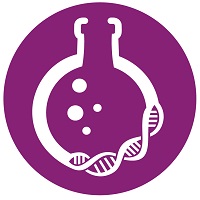Bioanalytics
Ensuring Patient Safety by Chemical Assessment of the Container Closure Material and Drug Product - Container Interactions

-
Fd
Frank de smedt, PhD (he/him/his)
Director of Scientific Improvements
Nelson Labs
Leuven, Vlaams-Brabant, Belgium
Chalk Talk Presenter(s)
Description: The biopharmaceutical manufacturing production of biologics can contain contaminating microbes, including viruses, and residual by-products that pose many significant health risks. Contamination can lead to product recalls, facility shutdown, cost companies millions of dollars, put patients at risk, and have a huge impact on healthcare due to low drug availability. Testing throughout the entire biologics manufacturing process is crucial as promptly identifying and addressing contamination in the manufacturing process can help avoid significant health risks and costs.
Viruses can contaminate biologics at various manufacturing stages, thus highlighting the critical aspect of viral safety testing to detect contaminating virus. Animal- and cell-based viral detection assays have significant disadvantages and testing challenges. Molecular methods, such as nucleic acid amplification by Polymerase Chain Reaction (PCR) and next generation sequencing (NGS), can overcome the many disadvantages animal- and cell-based assays present. Due to its high-throughput capabilities, rapid and sensitive target detection, PCR is widely used for detecting contaminants in biopharmaceutical products, making it an essential tool for ensuring biologics safety. Here, we will discuss PCR regulations including the recently updated ICH Q5A(R2) and how molecular methods can be utilized in biopharmaceutical safety testing.
Learning Objectives:
- Understand PCR Regulations: Gain insights into ASTM, ICH, FDA, EMEA and USP guidelines for PCR testing and their role in regulating quality assurance in biopharmaceutical manufacturing.
- Discuss the principles of ICH Q5A(R2) Updated Guidelines: Learn the principles presented in the updated ICH Q5A(R2) guidelines for molecular methods.
- Evaluate Molecular Methods: Discover how molecular methods and PCR can be utilized in biopharmaceutical safety testing.


